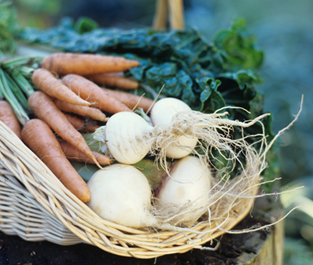MINDFUL EATING: 6 TIPS FOR EATING WELL WITHOUT SPENDING A FORTUNE
- Jessica L.Langdon

- 24 mag 2021
- Tempo di lettura: 4 min
Food is one of life's greatest pleasures. But is it possible to cultivate the art of eating healthily and in presence? The answer is undoubtedly...YES!

In recent years, Mindful Eating has become increasingly popular. This discipline follows the general orientation of Mindfulness, which assumes that every experience can be lived in full attention or presence and without any kind of judgement or automatic thoughts.
'I have very simple tastes; I always go for the best .' (Oscar Wilde)
The growing success of Mindful Eating is therefore understandable, especially nowadays, when due to COVID19, we are shut away at home experimenting with new dishes and perhaps in this context, we rediscover how to eat healthily and also in the right way. Its application is however recent, since some scholars from the University of Massachusetts Medical School, in 1999, after experimenting Mindfulness to some patients with eating disorders, decided to found the first centre related to the subject, with the aim of helping as many people as possible to achieve a balanced, respectful, healthy and joyful relationship with food and eating.
Conscious eating
First and foremost, the first rule to be able to eat consciously is to start to really love ourselves (on Twitter: #mindfuleating), knowing that feeding our bodies is a gesture of love that we make to ourselves, in choosing a better diet and living a total experience of food.
When we "consciously" decide on the journey into the pleasure of food, we ask ourselves some questions that we necessarily need to know in order to be able to deal with them in the best possible way, namely to:
recognizing physical hunger (real) from emotional hunger (created by emotions);
searching for and carefully choosing the most nutritious and good products in the various aisles of the supermarket, with a view to a real "treasure hunt";
Gradually train awareness during the meal, so that one can recognize the real degree of satiety.
An art to be cultivated daily
"One cannot think well, love well, sleep well if one has not eaten well." (Virginia Woolf)
In other words, eating well and mindfully becomes an art to be cultivated day after day, but it needs to be strengthened by a few key words so that results are not slow in coming. I started about a year ago, getting both my body and mind used to this teamwork. My personal experience has been to follow the following 6 principles calmly and without any hurry, but with deep determination, namely to:
Eat more slowly. This means chewing each ingested morsel for a long time, remembering that there is a close connection between the brain and the intestine, where the former takes 20 minutes to realize it is full. Therefore, it does not understand the quantity received, but you can fool it in the duration of chewing, enjoying the food most of all while strengthening both the jaw and mouth muscles.
Be honest in asserting a real need for hunger or not. The most difficult decision is to admit whether we are really hungry or whether it is just gluttony or obsessive thinking. Furthermore, understanding the importance of food nourishment for the body and mind empowers people to be deeply honest and ready for new challenges to overcome.
Start with one meal (lunch or dinner). Take your time to fully enjoy the food, whether in choosing the meal, tasting it, chewing it, until the final moment when you put the cutlery down on the plate, as if it were a ritual.
Do not use technological distractions. It is important to maintain eye contact with the food, without being distracted by smartphones or TVs, which shift our attention away from the plate. If you are in a company, it is better not to talk with your mouth full (a rule that also applies to etiquette) and to continue to eat carefully when the other person is talking to you. Good conversation often goes hand in hand with good food!
Use the 5 senses. This is my favourite part because it's like an experience within an experience. Through taste, smell, sight, hearing and touch, we get to know ourselves and what we really love. It is the greatest opportunity that this incredible discipline can offer us. Why not take it?
Eating well does not mean spending a lot of money. Contrary to what you may think, eating healthily does not mean spending hundreds of euros at the supermarket, but you can learn to choose with "care" the food that gives us the most nourishment, without forgetting the pleasure of tasting it. One idea for spending money, could be to buy mostly: fresh salad or in large bags to be washed at home, with tubs of tomatoes for dressing. Good EVO oil (or extra virgin olive oil) should never be missing from our table and then prefer white meat to red meat, such as turkey, rabbit and chicken, together with oily fish, both of which should be eaten three to four times a week. In addition, a 500g packet of pasta will be more than enough if you eat it twice a week. Finally, it is advisable to invest a few extra euros in a good natural mineral water, which is low in sodium if anything, to be consumed at least 2 litres a day. Your liver will thank you and you will feel less stressed!
JOMOSOPHY suggests:
"Mindful Eating. A Guide to Rediscovering a Healthy and Joyful Relationship With Food: A Guide to Rediscovering a Healthy and Joyful Relationship with Food", by Jan Chozen Bays (Author), (Revised Edition)2017.





